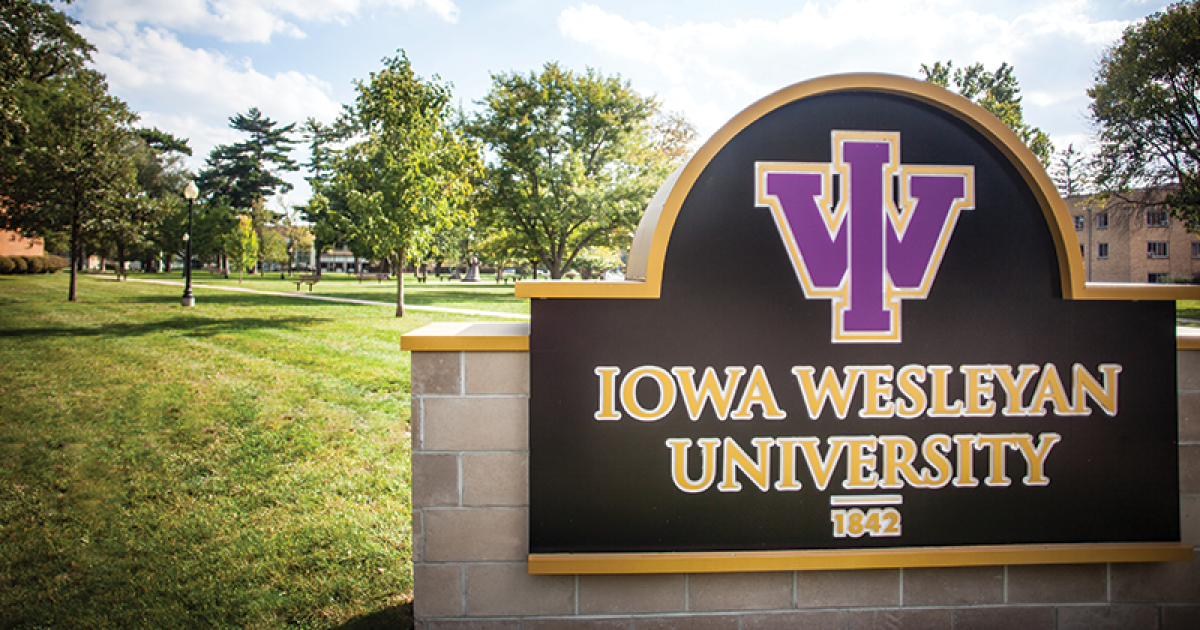A university in Iowa will close amid higher education sector’s struggles
3 min read
The 181-year-old Iowa Wesleyan University will shut down when the academic year ends in May after failing to secure state help or other solutions to its fiscal troubles.
The board of trustees made the decision this week, citing a combination of factors that included higher operating costs due to inflationary pressures, changing enrollment trends, a drop in philanthropic giving, and Gov. Kim Reynolds’ rejection of the school’s request for federal COVID-19 funding.
Higher education institutions nationally, particularly smaller, private, not-for-profit schools like Iowa Wesleyan, are struggling with enrollment, inflation and reduced giving. Many of them lack big enough endowments to offset costs, and are competing for fewer students.
Board of Trustees Chairman Robert Miller cited those headwinds in a statement announcing the closure.
“We have worked tirelessly to find solutions at all levels but to no avail,” he said.
The decision came after an “intensive analysis of Iowa Wesleyan’s financial operations and considerable exploration of all feasible strategic alternatives,” a statement from the university said.
The school in Mount Pleasant has an enrollment of about 800 students.
When the university closes on May 31, the physical campus will become the property of the United States Department of Agriculture. The university owes $26 million to the department with the debt covering a $21 million direct loan and the department guaranteeing a bank loan for $5 million. The school put up its property as collateral.
The university through a subsidiary foundation used the loans to repay outstanding debts and for operations, according to its last audited financial statements.
The school had seen positive signs in what it described as unprecedented enrollment growth, improvements in student retention, and success with efforts to address economic and workforce development challenges throughout southeast Iowa, including a new partnership with Southeastern Community College.
“While the university’s overall enrollment has increased post-pandemic, it is still not yet at a threshold needed for financial stability,” the statement said. The school is establishing “teach-out” agreements with other institutions that will allow students to finish their degrees at a comparable cost.
Iowa Wesleyan had asked the state for a $12 million allocation of American Rescue Plan Act funds on the basis that the school’s mission and activities align with her Empower Rural Iowa Initiative.
Reynolds defended the state’s decision after the closure was announced, saying an independent analysis from an accounting firm was conducted followed the school’s Feb. 3 request to help cover operating costs and that the funding would have fallen short of solving the school’s longer-term fiscal woes.
The accounting firm noted Iowa Wesleyan’s $26 million USDA loan could be recalled in full as early as November and the school’s own auditor has raised concerns that operating losses and reduced liquidity dampened the school’s future prospects.
“Based on this and other factors, the independent accounting firm determined that providing one-time, federal funds would not solve the systemic financial issues plaguing the university,” Reynolds said. “If the state would have provided the federal funding as requested and it was used to finance debt or other impermissible uses according to U.S. Treasury guidelines, the state and taxpayers could have been liable for potential repayment to the federal government.”
Reynolds also reported that the state has separately received $122 million in requests from other universities and community colleges across the state.
In a January report, S&P Global Ratings described the higher education sector’s outlook as mixed.
“Student enrollment has not rebounded to pre-pandemic levels uniformly across the sector, and many schools continue to face enrollment pressures,” said analyst Jessica Wood. “At the same time, wage and general expense inflation will continue to be an economic challenge for most higher education providers while revenue recovery, even with tuition increases, is likely not enough to fully offset expense growth.”
Lincoln College in central Illinois closed last May after 157 years.







